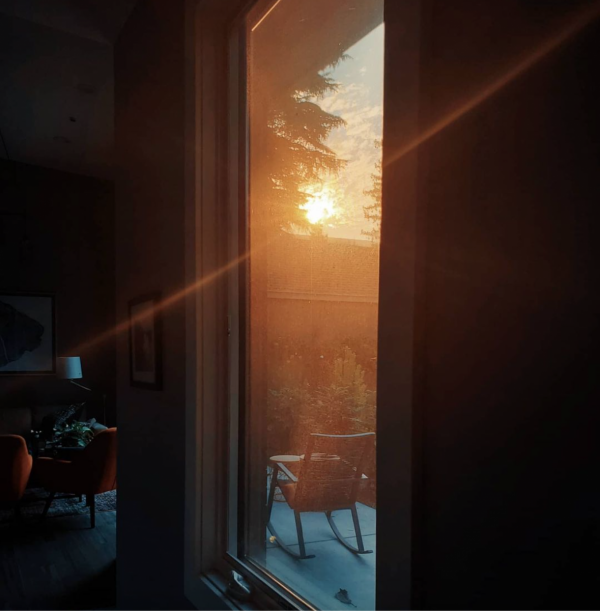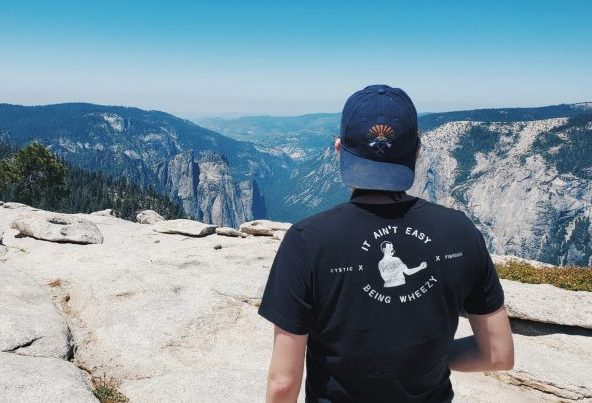Stillness Silences the Sound of Striving
Written by |

Editor’s note: The following contains spoilers of the film “Sound of Metal.”
I yearn for the days I drew close, very close, to death.
Each thought, emotion, and sight weighed heavy. And each breath was precious; who knew if there’d be another? I’d become deaf, and silence became peace once befriended. Each day teemed with possibilities, not for doing things — I was too sick for that — but for realizing things.
My world was formless and void, yet so very sacred and beautiful. Much awaited creation: a new identity, perspective, wisdom, faith. A new way of being. Even in what I thought to be my dusk, I wanted to know myself. And so I thought a lot, sitting still and doing nothing but grieving, enjoying, processing, reflecting. Feeling.
Reaching that mindset proved difficult. Before then, I’d worshipped at a vast array of altars: career, power, intellect, other things. In mere moments, it all burned up. Deafness destroyed my journalism pursuits, waves of medical crises tossed helpless me to and fro, oxygen deprivation suffocated my brains. The idols dissipated; vapors prey to the winds, meaninglessness. All control slipped swiftly from my grasp. I moaned in the night and sobbed when I woke. I panicked and cried out daily, begging to hear my own voice.
In the film “Sound of Metal,” deaf drummer Ruben signs frantically about the need to save his life, about how everything, including him, is passing. His mentor, Joe, replies, “All these mornings you’ve been sitting in my study. Sitting. Have you had any moments of stillness? ‘Cause you’re right, Ruben. The world does keep moving, and it can be a damn cruel place. But for me, those moments of stillness … that place, that’s the kingdom of God. And that place will never abandon you. From where I’m sitting, you look and sound like an addict.”
I, too, was an addict, scrambling about screaming while clutching at ashes. I had to learn to let them be, you see? In my hopeless scrabbling, I furthered the illusion that I had any control to begin with. This world’s ways are far too abrupt, violent, for anyone to possess control.
It was dehumanizing to lose my ears, traumatizing to lose my air, unbearable to lose my life.
But there’s no better way to prioritize what matters in life than to lose your life. I could barely move, I was so sick. Learning stillness felt like an impossibility after years of relentlessly striving and seizing. But I had no choice. In the stillness, I released it all: my hurt, my pride, my “control.” In that solace, my former striving seemed intolerably loud.
Those days of surrender at death’s door were my best on this earth. I’m nostalgic for them.
I didn’t expect the pain of moving again. I felt retraumatized upon receiving new lungs and cochlear implants, only to find life had continued rushing forth without me. Friends had moved on, workplaces had moved on, my girlfriend had moved on, all had moved on. (They all had good reasons.) But I was stuck.
The nature of trauma is you stay there, wherever “there” is. For years, I could only ever speak about my stretch of intense suffering. I’d long awaited fleeing that season, only to find I couldn’t bear to peel myself from it. I was endlessly reliving my traumas.
Further inflaming my heartache, I felt eons older than my friends, despite sensing I’d been frozen in time while they’d continued their lives. In only a year and a half — the time between leaving home for my transplant and returning — I’d been stretched across a lifetime of fear and hurt and peace and joy. I felt even more alone than when I was deaf.
Trauma does these things: sticks you to your past yet grows you too fast. Though I tried for a time, I was not, and am not, ready to rejoin the world’s rush. I don’t need to. Why forsake the sacredness of stillness?
In “Sound of Metal,” Ruben strived desperately to restore his hearing through cochlear implants. He did it for his girlfriend, his drumming career, his happiness. But his girlfriend leaves him, his career is no longer realistic, and he inhabits a hollow limbo between the deaf and hearing worlds.
He’s lost “control” of all he strived to regain. His fantasized future was really only an attempt to turn back the clock, to become who he was. But trauma-wrought metamorphosis refuses reversal.
At a park, he deeply inhales, removes his implants, stills himself. Exhales. His world is calm. He’s simply being. The kingdom of God warms his heart. In this place, in this stillness, he doesn’t need to strive with the world and he doesn’t need control.
In my stillness, nor do I.
***
Note: Cystic Fibrosis News Today is strictly a news and information website about the disease. It does not provide medical advice, diagnosis, or treatment. This content is not intended to be a substitute for professional medical advice, diagnosis, or treatment. Always seek the advice of your physician or other qualified health provider with any questions you may have regarding a medical condition. Never disregard professional medical advice or delay in seeking it because of something you have read on this website. The opinions expressed in this column are not those of Cystic Fibrosis News Today, or its parent company, Bionews, and are intended to spark discussion about issues pertaining to cystic fibrosis.









Vandana
Gives a bit of hope. Go Brad!
Brad Dell
Thank you so much, Vandana!
Paul
Beautiful account of finding stillness. Experiencing trauma is one way to it. But stillness is in all of us, always. It gets overgrown with our illusory perception of being a separate person, looking for control and happiness. In the face of death we can find out that we (the person) was actually never born but there is only being, aliveness, impersonal, as a feature of the unknowable whole. The Christian tradition describes this as the Kingdom of God. It is in us and we are in it. This death of the person/ego uncovers the substratum of vast stillness we all ever are. This is liberation.
Brad Dell
Love this, Paul! Thanks for the elaboration on that thought -- intriguing.